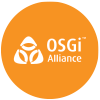Why build a go-kart from scratch when you can drive a race car for free. And also customizable.
Now, imagine the road being your IoT Edge ecosystem and the car being your application that needs to bring valuable data from point A to point B. There are several things to consider when developing an Edge application.
You will for sure need to read data from sensors, process it, and send them somewhere else. Maybe you would need to add some remote device management functions, and, undoubtedly, make everything secure.
Advanced Edge applications require a lot of work. So, why not profit of Eclipse Kura? Eclipse Kura offers you an advanced, mature, and highly-secure software framework to easily deploy applications at the Edge.
In this talk, you are going to learn about the latest Eclipse Kura features and how to easily configure and manage devices remotely in a secure manner. Adopting a new framework is always challenging, so in this talk, I can give you my learning experience as a Junior Software Developer that has started working on this framework.







